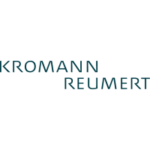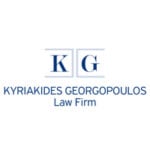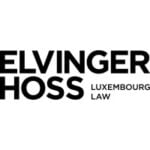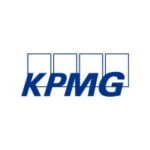-
Climate – the law governing operations that emit Greenhouse Gases (e.g. carbon trading) is addressed by Environment and Climate Change international guides, in respect of ESG: a. Is there any statutory duty to implement net zero business strategies; b. Is the use of carbon offsets to meet net zero or carbon neutral commitments regulated; c. Have there been any test cases brought against companies for undeliverable net zero strategies; d. Have there been any test cases brought against companies for their proportionate contribution to global levels of greenhouse gases (GHGs)?
a. Is there any statutory duty to implement net zero business strategies;
There are no such statutory duties to implement net zero business strategies in Sweden. However, the European Union (“EU”) directive on corporate sustainability due diligence (the “CS3D”) was adopted in 2024 and shall be implemented by Member States by 26 July 2026. The CS3D will require businesses within its scope to adopt and put into effect a transition plan for climate change mitigation. The aim of this plan should be to ensure that the business model and strategy of the company are compatible with the transition to a sustainable economy and with the limiting of global warming to 1.5 °C in line with the Paris Agreement and the objective of achieving climate neutrality as established in Regulation (EU) 2021/1119 (the “European Climate Law”).
The CS3D, will apply to EU companies which individually or on group level have:
- 1000 employees on average, and,
- EUR 450 million in net worldwide turnover.
Also, companies or groups which have entered into royalty agreements where the total royalties received exceed EUR 22.5 million are within scope of the CS3D, if the company concerned itself, or as the head of a group, reported a net worldwide turnover exceeding EUR 80 million in that same fiscal year.
The CS3D will additionally apply to non-EU companies if they (i) generated a net turnover of more than EUR 450 million in the Union in the financial year preceding the last financial year, (ii) are a ultimate parent company of a group that on a consolidated basis reaches the aforementioned threshold in the financial year preceding the last financial year, or (iii) have entered into royalty agreements where the total royalties received from these agreements exceed EUR 22.5 million in the union, if the company concerned itself, or as the head of a group, reported a turnover exceeding EUR 80 million in the union.
The Swedish government has commissioned a special inquiry committee to examine the implementation of the CS3D into Swedish law. The inquiry committee is expected to present its findings at the latest on 16 December 2025. Under the Directive, as it stands, the start of application of the obligations for companies in scope will be staggered, with the first group of companies (having more than 5 000 employees and a net worldwide turnover om more than EUR 1 500 million) having to comply from 26 July 2027. Member States have the opportunity to apply these obligations earlier, but there are no indications the Swedish government will do so.
It should be noted that amendments to the CS3D were proposed at the end of February 2025 in the so-called Omnibus I and II (the first Omnibus simplification package).
The Commission’s proposal sets out several recalibrations and simplifications of the CS3D. Of central interest is that the CS3D transposition deadline is postponed by one year to July 2027. Moreover, the first wave of due diligence requirements for the largest companies in scope is postponed by one year to July 2028.
The proposal is presently before the European Parliament and the Council and is expected to go into the so called trilogue negotiations between those two institutions and the European Commission shortly.
b. Is the use of carbon offsets to meet net zero or carbon neutral commitments regulated;
As a Member State of the EU, Sweden is part of the EU Emission Trading System (“ETS”). The ETS is designed to support the EU’s overall goal to reduce carbon emissions by at least 55% by 2030 compared to 1990 levels, in line with the European Green Deal, the European Climate Law and the EU’s commitment to global climate action under the Paris Agreement. The system operates on the ‘cap and trade’ principle which covers around 40% of the EU’s greenhouse gas emissions. Offsetting is allowed in relation to emissions verified as captured and transported for permanent storage to a facility for which a permit is in force in accordance with Directive 2009/31 (the “EU Carbon Capture and Storage Directive”). Moreover, such emissions must also have been permanently chemically bound, through capture or utilisation, in a way that hinders their dispersal into the atmosphere under normal use.
Furthermore, at the end of 2024, the EU adopted Regulation (EU) 2024/3012 establishing a union certification framework for permanent carbon removals, carbon farming and carbon storage in products. The voluntary regime, imposed by the Regulation, permits Member States that meet certain specified criteria, to account for permanent carbon removals in achieving their respective nationally determined contributions (“NDCs”) as well as for EU-wide climate objectives. However, permanent carbon removals may not be counted towards third party NDCs, international compliance schemes, or the EU ETS.
In addition, the EU is currently preparing a new directive on Green Claims. The proposed directive sets out requirements on, inter alia, transparency and accuracy, which must be met in order for a company to be allowed to make certain green claims on products. For example, claims relating to making carbon offsets in order to meet net zero or carbon neutral commitments are covered. As of April 2025, the proposal is still under negotiation in the trilogue meetings between the European Parliament, the Council and the European Commission
c. Have there been any test cases brought against companies for undeliverable net zero strategies;
To the extent of our knowledge, no cases specifically regarding net zero strategies have been brought before Swedish courts. However, cases have been brought by Swedish authorities against unsubstantiated sustainability claims in relation to certain products, see question 12.
A judgement from the Swedish Market Court (Sw. Marknadsdomstolen) concerning the marketing of carbon capture and storage (“CCS”) technology might, nevertheless, be of interest. In this case (MD 2007:31), a company’s use of the term “carbon dioxide-free”, mainly on its websites, was not considered to be of a distinctly commercial nature and the Swedish Marketing Act (Sw. Marknadsföringslag (2008:486)) was therefore not considered to be applicable. Following, the court concluded that the statements in question could not be prohibited.
d. Have there been any test cases brought against companies for their proportionate contribution to global levels of greenhouse gases (GHGs)?
To the extent of our knowledge, there have not been any such cases in Sweden. However, a judgment from the Supreme Administrative Court (case HFD 2018 ref. 55) is of some interest. The company concerned, which had incurred expenses for climate compensation, marketed their climate work in the sale of its products. The Supreme Administrative Court found that the company had the right to make deductions for the climate compensation costs as marketing expenses under the Swedish Income Tax Act (Sw. Inkomstskattelag (1999:1229)).
-
Biodiversity – are new projects required to demonstrate biodiversity net gain to receive development consent?
The Swedish Environmental Code (Sw. Miljöbalk (1998:808)) governs environmental matters, including those related to biodiversity and land development. The Code is designed to promote sustainable development that ensures a healthy and good environment for present and future generations. When it comes to consent for new projects and for land developments, the Swedish Environmental Code sets out a framework that requires consideration of environmental impacts in collaboration with relevant authorities and/or municipalities. This includes the assessment of potential effects on biodiversity and the code emphasizes the importance of protecting valuable natural and cultural environments. Developers are normally required to conduct environmental impact assessments when their projects are likely to have significant environmental effects.
-
Water – are companies required to report on water usage?
There is no general requirement for companies to report their water usage. However, under the Swedish Environmental Code, activities that may have a significant impact on the environment are subject to reporting and permit requirements. This includes the use of water resources, a particularly critical environmental issue in areas where water is scarce or where there are sensitive ecosystems.
Companies engaging in operations that require large amounts of water, or that may affect water quality, are typically required to obtain permits. These permits can include conditions related to the monitoring and reporting of water use. The specifics of these requirements vary depending on the nature of the business, the amount of water used, and the potential impact on the environment.
-
Forever chemicals – have there been any test cases brought against companies for product liability or pollution of the environment related to forever chemicals such as Perfluoroalkyl and Polyfluoroalkyl Substances (PFAS)?
There have been some high-profile cases against companies for product liability or pollution of the environment related to PFAS, notably Case T 486-23 of the Swedish Supreme Court regarding product liability related to PFAS.
The case was brought by some 150 residents against Ronneby Miljö och Teknik AB, a company wholly owned by Ronneby municipality, which supplied drinking water to the urban areas in the municipality. The action was based on the Swedish Product Liability Act (Sw. Lag (1992:18) om ansvar för skada orsakad av produktsäkerhetsbrister), which transposes Directive 85/374/EEC, the “EU Product Liability Directive“, and concerned the company’s distribution of PFAS contaminated drinking water. The plaintiffs alleged personal injury due to PFAS exposure caused by the company’s distribution of PFAS contaminated drinking water and demanded the company to compensate them for personal injury. The Supreme Court examined whether the plaintiffs suffered personal injury by elevated PFAS levels in their blood. Aligning the term “personal injury” in the Swedish Product Liability Act with that of the Swedish Tort Liability Act (Sw. Skadeståndslag (1972:207)), the Court emphasized the need for a tangible impairment of the body. It further underscored that an increased risk of future harm alone did not constitute personal injury.
In its judgment of 5 December 2023, the Supreme Court nevertheless concluded that the contaminated water significantly impacted the plaintiffs’ bodies as “the considerable physical deterioration manifested in the high levels of PFAS in each appellant’s blood must be regarded as constituting an impairment which is a personal injury for the purposes of tort law”. Consequently, the Supreme Court held the company liable for compensating the plaintiffs for these personal injuries. Nevertheless, the Supreme Court refrained from deciding on the extent to which the personal injury had resulted in consequences that would entitle the plaintiffs to compensation, nor did it decide on the amount of compensation to be awarded.
In addition, on 9 April 2024, the Land and Environment Court of Appeal (Sw. Mark- och miljööverdomstolen) ordered the Swedish Armed Forces to pay Uppsala Vatten och Avfall, a company owned by the municipality of Uppsala, approximately SEK 37 200 000 in damages plus interest for damages caused by PFAS contamination of the soil and groundwater in areas in which the Swedish Armed Forces had used firefighting foam containing PFAS.
-
Circularity – a. The law governing the waste hierarchy is addressed by the Environment international guide, in respect of ESG are any duties placed on producers, distributors or retailers of products to ensure levels of recycling and / or incorporate a proportionate amount of recycled materials in product construction? b. Are any duties placed on producers, distributors or retailers of products to handle the end-of-life of the products placed on the market?
a. the law governing the waste hierarchy is addressed by the Environment international guide, in respect of ESG are any duties placed on producers, distributers or retailers of products to ensure levels of recycling and / or incorporate a proportionate amount of recycled materials in product construction?
There are no general obligations placed on producers, distributers, or retailers to ensure levels of recycling and/or incorporate a proportionate amount of recycled materials in product construction. However, there are industry specific legislations setting out responsibility of producers of e.g. packaging and of non-reusable products.
For instance, pursuant to the Swedish Ordinance on Producer Responsibility for Packaging (Sw. Förordning (2022:1274) om producentansvar för förpackningar), partly transposing Directive (EU) 2019/904 on the reduction of the impact of certain plastic products on the environment, several duties are placed on producers of packaging, such as:
- Producers are required to limit unnecessary packaging;
- All packaging entering the Swedish market must be reusable or recyclable;
- Producers of plastic bottles made primarily from PET must include at least 25% recycled plastic by the end of 2024, unless their volume is above three liters or if they are produced for specific medical use;
- Plastic caps and lids on bottles must remain attached;
- Producers must report annually to the Swedish Environmental Protection Agency ( Naturvårdsverket), the amount of packaging provided on the Swedish market, including the amount of recycled plastic used in PET bottles.
Furthermore, according to the Swedish Ordinance on Single-use Products (Sw. Förordning (2021:996) om engångsprodukter), fast food providers and providers of single-use cups, are obliged to offer the possibility to have their products served in a re-usable box/cup and take effective measures so that their boxes and cups can be reused several times.
b. Are any duties placed on producers, distributors or retailers of products to handle the end-of-life of the products placed on the market?
Producers, distributors, and retailers of certain products are responsible for end-of-life processes on a sector specific basis, which is complementary to general waste management obligations under the Swedish Environmental Act (Sw. Miljöbalk (1998:808)).
This includes products such as electrical and electronic equipment (including batteries), cars, and fishing equipment.
- Electrical and electronic equipment (including batteries): Producers and retailers of electrical and electronic equipment have obligations regarding end-of-life treatment for their products under several Swedish acts. These obligations are primarily derived from the Swedish transposition of the European Union (“EU”) Directive (2012/19/EU) (“WEEE directive”) and the Battery Directive (2006/66/EC).
- Two central Swedish acts are the Producer Responsibility for Electrical Equipment Act and the Producer Responsibility for Batteries Act (Sw. Förordning (2022:1276) om producentansvar för elutrustning and Förordning (2008:834) om producentansvar för batterier). Under these acts, companies in scope are obliged to finance (or organize) treatment of electrical waste once their products reach end-of-life, provide a take-back service for old equipment, and ensure that any collected waste is disposed of in a sustainable manner. Companies are also required to register with national authorities prior to putting any products in scope on the Swedish market and must present yearly reports on the volume of sold and collected products. Many retailers (depending on size) face similar obligations and are required to offer in-store collection of small electronic waste and accept old products free of charge.
- The Swedish Environmental Protection Agency is the main point of contact for registration and annual reporting on how much waste has been collected and the quantity of new products that have been sold.
- Processing of the collected products at the end of their life span is mainly regulated in Swedish law through the Waste Regulation (Sw. Avfallsförordning (2020:614)) and the Swedish Environmental Protection Agency’s instructions on professional storage and treatment of electrical waste covered by producer responsibility (Sw. Föreskrifter om yrkesmässig lagring och behandling av elavfall som omfattas av producentansvar (NFS 2018:11)).
- Any such waste processing activities require entities in scope to register with national authorities, normally municipal committees (Sw. Kommunala nämnder) or the County Administrative Board (Sw. Länsstyrelsen). The Swedish Environmental Protection Agency also issue further guidelines on the required reporting for processing and storing electrical and electronic waste which are publicly available.
- Cars: Producers of cars in, and importers of cars to, Sweden are subject to obligations concerning the end-of-life treatment of the concerned vehicles. These responsibilities are primarily derived from the Swedish transposition of the EU End-of-Life Vehicles (“ELVs”) Directive (2000/53/EC), which sets requirements for vehicle collection, dismantling and recycling. Some central national acts include the Ordinance on Producer Responsibility for Vehicles ( Förordning (2023:132) om producentansvar för bilar) and the Vehicle Scrapping Ordinance (Sw. Bilskrotningsförordning (2007:186)). Under these ordinances, Swedish companies in scope, or an authorised representative for foreign companies (Sw. Producentombud), must ensure compliance regarding the treatment of ELVs.
- Obligations under Swedish law includes financing or organizing collection and treatment systems in which at least 95% of each car’s weight should be recycled or reused. Companies must also inform car buyers about vehicle disposal options and participate in vehicle take-back systems.
- Entities handling ELVs must comply with the Swedish Waste Ordinance (Sw. Avfallsförordning (2020:614)) and final dismantling must be undertaken by an authorized vehicle dismantler. Authorized vehicle dismantlers must register with municipal or county authorities and comply with storage and treatment requirements.
- The Swedish Environmental Protection Agency is the main authority for registration, and reporting and ensuring that ELVs are processed in accordance with Swedish law.
- Companies that put vehicles on the Swedish market must also report annually to the Swedish Environmental Protection Agency on how they fulfill their obligations according to the Ordinance on Producer Responsibility for Vehicles (Sw. Förordning (2023:132) om producentansvar för bilar).
- Fishing equipment: Producers and distributors of fishing nets and other plastic-based fishing tools such as buoys, and importers of such products into Sweden, are subject to obligations concerning the end-of-life treatment of their products. Responsibilities for end-of-life fishing equipment are primarily derived from the EU Single-Use Plastics Directive (2019/904/EC). A central piece of legislation in the transposition of this Directive, regarding the fishing industry, is the Ordinance on Producer Responsibility for Fishing Equipment ( Förordning (2021:1001) om producentansvar för fiskeredskap).
- Under the current legislation, producers must ensure that a quota of end-of-life equipment is collected, treated, and reported to the Swedish Environmental Protection Agency. They must also participate in a producer responsibility organization or establish one in compliance with national law. Producers must then register with the Swedish Environmental Protection Agency (Sw. Naturvårdsverket) and submit annual reports on the amount of fishing equipment placed on the market and collected for waste management by the relevant producer responsibility organization.
- Entities handling fishing gear waste in general must also comply with the Swedish Waste Ordinance (Sw. Avfallsförordning (2020:614)), including amendments such as the Ordinance Amending the Waste Ordinance (Sw. Förordning om ändring i avfallsförordningen (2021:1008)).
Producers, distributors, and retailers of certain other products (e.g. tires, balloons, tobacco-products, and wet wipes) are also to a varying extent responsible for end-of-life treatment of their products. Further information regarding these obligations is available at the Swedish Environmental Protection Agency.
-
Plastics – what laws are in place to deter and punish plastic pollution (e.g. producer responsibility, plastic tax or bans on certain plastic uses)?
Rules concerning plastics in Sweden are dispersed across various acts and ordinances, notably the following. The Swedish Act on Tax on Plastic Carrier Bags (Sw. Lag (2020:32) om skatt på plastbärkassar) was repealed on 1 November 2024.
Mandatory return systems
The Swedish Ordinance on Producer Liability for Packaging (Sw. Förordning (2022:1274) om producentansvar för förpackningar) sets out a mandatory return system for beverage containers, specifically for plastic bottles and metal cans, intended for the Swedish market. It requires producers that professionally bottle beverages or professionally import beverages in such containers to ensure their inclusion in a recognized return system, with an exemption for dairy products (which is set to expire in 2029). The Ordinance defines the term ‘plastic’ as polymer that can be used as the main structural component in final products and the term ‘polymer’ in alignment with the EU REACH Regulation (1907/2006).
Ban on certain single-use products
The Swedish Ordinance on Single-use Products (Sw. Förordning (2021:996) om engångsprodukter, see also above question 5) aims to reduce littering and promote a circular economy by regulating single-use products in Sweden. Additionally, producers of single use products are covered by the Ordinance on Littering Fees (Sw. Förordning (2021:1002) om nedskräpningsavgifter). To cover municipal costs for cleaning up products that end up as litter producers pay both a variable product fee and a fixed annual fee. The Swedish Environmental Protection Agency conducts periodic surveys on litter in outdoor environments to ascertain how much of each product category is contributing to littering. This data is then used to calculate each product category’s share of cleanup costs, which producers pay according to the number of single-use units they place on the Swedish market.
Definitions within the Ordinance on Single-use Products clarify terms such as polymers, plastics, and various types of single-use items, including cups, food containers, and plastic bags. A significant aspect of the Ordinance is the prohibition of certain single-use plastic products, such as cotton swabs, expanded polystyrene containers, cutlery, and plates. It mandates that alternatives to single-use cups and food containers must be offered, with a focus on reusable options, and sets a target to reduce the consumption of single-use plastic cups and food containers by 50% by 2026 compared to 2022 levels. The Ordinance also includes requirements for marking and consumer information to encourage responsible disposal and reduce littering.
Additional provisions can be found in other ordinances concerning waste from specific products like packaging, tobacco, balloons and wet wipes (Sw. Förordning (2022:1274) om producentansvar för förpackningar, Förordning (2021:998) om producentansvar för vissa tobaksvaror och filter, Förordning om producentansvar för ballonger (2021:999) and Förordning om producentansvar för våtservetter (2021:1000)).
-
Equality Diversity and Inclusion (EDI) – what legal obligations are placed on an employer to ensure equality, diversity and inclusion in the workplace?
In Sweden, the legal obligations for employers regarding Equality, Diversity, and Inclusion (“EDI”) in the workplace are primarily governed by the Discrimination Act (Sw. Diskrimineringslag (2008:567)), which aims to combat discrimination and promote equal rights and opportunities regardless of gender, gender identity or expression, ethnicity, religion or other belief, disability, sexual orientation, or age.
Key Provisions of the Discrimination Act
- Prohibition of Discrimination: Employers may not discriminate against employees, job applicants, trainees, trainee applicants or hired/temporary workers on any of the grounds mentioned above (with certain limited exemptions). However, the prohibition of discrimination in terms of lack of accessibility does not apply in relation to a person who merely makes a request for work. Discrimination can be direct, such as treating someone less favorably because of their age, or indirect, such as implementing a policy that disproportionately affects a certain group without a legitimate aim.
- The obligation to investigate and act: Employers are required to investigate and take such actions as may reasonably be required to prevent future harassment, in case of knowledge of harassment related to any of the discrimination grounds or sexual harassment.
- Active Measures: Employers are required to take active measures to promote equal rights and opportunities in the workplace. This involves regular analysis of the work environment to identify risks of discrimination, taking steps to prevent harassment, and promoting equal employment opportunities for all, especially in recruitment, training, and promotion processes.
- Victimization: The Discrimination Act also protects employees from victimization, which refers to adverse treatment of an individual who has made a complaint about discrimination or has participated in an investigation of such a complaint.
- Accessibility for Persons with Disabilities: Employers must ensure that the workplace is accessible to persons with disabilities, which may involve making reasonable adjustments to the work environment or providing support that enables the persons concerned to carry out their work.
Employer Responsibilities
- Policy Implementation: Employers must implement policies that outline their commitment to EDI and the steps they will take to ensure a non-discriminatory work environment.
- Training and Awareness: Employers must provide training to all staff, including management, on EDI issues to raise awareness and ensure that the principles of non-discrimination are understood and applied.
- Documentation and Follow-up: Employers are required to document their EDI efforts and the results of these efforts. The Equality Ombudsman (Sw. Diskrimineringsombudsmannen), the government agency responsible for monitoring compliance with the Discrimination Act, may request a copy of this documentation.
Enforcement and Compliance
The Equality Ombudsman is responsible for monitoring compliance with the Discrimination Act and ensures its enforcement. Employers who fail to comply with their obligations under the Act may face legal action, which may result in orders to take corrective measures and/or financial penalties.
-
Workplace welfare – the law governing health and safety at work is addressed in the Health and Safety international guide, in respect of ESG are there any legal duties on employers to treat employees fairly and with respect?
While there are no explicit provisions in Swedish law stating that employers shall treat employees fairly and with respect, there are several acts to that effect.
Work Environment Act
The Swedish Work Environment Act (Sw. Arbetsmiljölag (1977:1160)) places a duty on employers to provide a safe working environment that prevents bad health and accidents. The Act covers various aspects of the work environment, including:
- Physical working conditions,
- Psychological and social working conditions,
- Opportunities for personal development and training, and
- Prevention of work-related injuries and illnesses
Discrimination Act
See Question 7.
Co-Determination at Work Act
The Swedish Co-Determination at Work Act (Sw. Lag (1976:580) om medbestämmande i arbetslivet) is a law that provides employees with the right to influence the work environment and the terms of employment. It establishes the framework for negotiations between employers and employees’ unions and includes provisions for employee participation in decision-making processes.
Annual Leave Act
The Swedish Annual Leave Act (Sw. Semesterlag (1977:480)) ensures that employees are entitled to annual leave and goes beyond the minimum requirements set by the EU Working Time Directive (Directive 2003/88/EC). The Annual Leave Act stipulates a minimum of 25 paid vacation days that employees are entitled to each year. The Working Time Directive stipulates a minimum of 20 paid vacation days.
Parental Leave Act
In June 2019, the European Parliament and the Council of the European Union adopted the Work-life Balance Directive (Directive 2019/1158). According to the Work-Life Balance Directive, each parent is entitled to at least four months of parental leave. At least two of these months are non-transferable between parents. Since Sweden largely already met the requirements of the Directive, only a few legislative changes have been necessary.
The Swedish Parental Leave Act (Sw. Föräldraledighetslag (1995:584)) provides for parental leave in connection with childbirth or adoption, of a combined 480 days/child to be divided between the parents. The allowance for 390 of these days is based on the income of the parent taking the leave, while the allowance for the other 90 days is set to a minimum level of 180 SEK/day (approx. 15-16 EUR/day). If the parents have shared custody, 90 days are reserved for each parent, while the rest may be divided as the parents see fit. This means that three months, instead of two months (compared to the Work-Life Balance Directive) are not transferable between parents.
-
Living wage – the law governing employment rights is addressed in the Employment and Labour international guide, in respect of ESG is there a legal requirement to pay a wage that is high enough to maintain a normal standard of living?
In Sweden, a specific living wage is not explicitly mandated by law. Sweden has a well-established tradition of collective bargaining agreements that play a significant role in determining wages and which go back to the beginning of the 20th century. These agreements are negotiated between trade unions and employers or employers’ associations and are legally binding for the signatory parties. A large proportion of the Swedish workforce is covered by collective agreements.
European Union (“EU”) Directive (EU) 2022/2041 on Adequate Minimum Wages (the “Minimum Wage Directive”) mandate adequate minimum wages in the EU. However, Sweden fulfils the alternative requirements provided for in the Directive, by having a sufficiently high proportion of the workforce being covered by collective agreements. Therefore, Sweden is not required to implement a minimum wage under the Directive.
It could be noted that Advocate General Emiliou, in his Opinion delivered on 14 January 2025 (Case C-19/23, Denmark v European Parliament and Council), concluded that the Minimum Wage Directive should be annulled by the Court of Justice of the European Union (“CJEU”) because of lack of competence of the EU – according to Article 153(5) Treaty on the Functioning of the European Union (“TFEU”), the provisions of Article 153 do not apply to pay. The CJEU has not yet rendered judgment.
-
Human rights in the supply chain – in relation to adverse impact on human rights or the environment in the supply chain: a. Are there any statutory duties to perform due diligence; b. Have there been any test cases brought against companies?
a. Are there any statutory duties to perform due diligence;
Currently, there are no statutory duties in Swedish law to perform due diligence in relation to human rights or the environment. Nonetheless, the Corporate Sustainability Due Diligence Directive (“CS3D”), which is mentioned under Question 1, contains extensive due diligence requirements to identify and address actual and potential adverse impacts on human rights. These obligations extend to the operations of the companies’ own operations, as well as to those of their subsidiaries and business partners throughout the value chain.
However, the CS3D does not include specific provisions to prevent products produced with forced labour from entering the internal market, made available within the European Union (“EU”), or being exported from the Union. In addition, it does not apply to small or medium sized enterprises. This gap is partly addressed by Regulation (EU) 2024/3015 (the “Forced Labour Regulation”) which will enter into force in 2027 and introduces a legal framework encompassing not only companies’ direct operations but also indirect operations in their supply chains. The Forced Labour Regulation applies to all companies irrespective of size. However, it does not impose due diligence requirements on economic operators regarding forced labour. These requirements follow from the application of the CS3D.
Regulation (EU) 2023/1115 (the “Deforestation Regulation”) will apply from 30 December 2025. The objective of the Regulation is to prevent products made from certain commodities (e.g., wood, cattle, palm oil, cocoa and coffee) to be placed or made available on the internal market or from being exported unless they are deforestation free. Deforestation free products in this context refers to goods that have been produced in accordance with the relevant laws of the country of production, are covered by a due diligence statement and do not contribute to deforestation or forest degradation. The due diligence statement serves as the basis for the fulfilment of the imposed obligations and ensures that products and commodities are free from deforestation and forest degradation.
b. Have there been any test cases brought against companies?
There has been one high-profile case in Sweden concerning human rights in the supply chain. although it did not (directly) concern the obligation to perform due diligence. The case, which concerned waste management in mining operations, involved Arica Victims, a Swedish company representing 796 Chilean citizens, and Boliden Mineral AB, a Swedish mining and smelting company. The plaintiffs claimed that Boliden’s export of 20,000 tons of smelting waste, allegedly containing arsenic and other heavy metals, to Chile in the mid-1980s had caused environmental and health damages to the residents in the Polygono area. The defendant argued that it acted in accordance with the applicable laws and standards at the time, and that it was not responsible for any insufficient waste management by its Chilean contractor, Promel, that oversaw the storage and refining of the waste on site in Chile.
The case was first heard by The Skellefteå District Court (Sw. Skellefteå Tingsrätt), which in its judgment of 8 March 2018 (case T 1012-13) dismissed the plaintiffs’ claim against Boliden on two grounds. Firstly, the court found that the plaintiffs did not establish damages of sufficient severity – as many individuals did not exhibit arsenic levels above the threshold of 100 μg per litre of urine. Secondly, the plaintiffs failed to demonstrate a causal link between Boliden’s waste in Arica and the arsenic levels detected in the urine of residents, even when levels exceeded the threshold, thus excluding any remaining individuals represented by Arica Victims KB.
The plaintiffs appealed to the Court of Appeal for Upper Norrland (Sw. Hovrätten för Övre Norrland). In its judgment of 27 March 2019 (case T 294-18), the Court of Appeal applied Swedish tort law instead of Chilean tort law, contrary what was done in District Court proceedings. The Court of Appeal found that Arica Victims KB’s claim was time-barred under Swedish law, which has a ten-year statute of limitations for civil claims. The case was then dismissed, and the plaintiffs were charged with paying Boliden’s legal costs.
The Supreme Court did not grant leave to appeal.
-
Responsibility for host communities, environment and indigenous populations – in relation to adverse impact on human rights or the environment in host communities: a. Are there any statutory duties to perform due diligence; b. Have there been any test cases brought against companies?
a. Are there any statutory duties to perform due diligence;
The Swedish legal order contains legislation protecting human rights, the environment, and the rights of indigenous populations, such as the Sámi people. This framework is based both on national legislation and on international agreements to which Sweden is a party.
- Environmental Law: Swedish environmental legislation is comprehensive, and the central act is the Environmental Code (Sw. Miljöbalk (1998:808)). Companies operating in Sweden must comply with the Environmental Code, which includes conducting environmental impact assessments for activities that may have a significant impact on the environment. In addition, Regulation (EU) 2023/1115 (the “Deforestation Regulation”) will as of December 2025 require companies that trade in, or import, materials such as wood, cocoa, rubber and soya (and products containing such materials) to perform a due diligence prior to placing their products on the European market, including Sweden. The due diligence-process is specifically aimed at minimising the circulation of goods related to deforestation (which can affect the rights of for example host communities and indigenous populations) and any such goods will be prohibited. Necessary steps in the due diligence process include collecting and retaining information about the supply chain involved in producing the materials, a risk assessment (if risks are identified companies must take risk mitigation measures), and submitting a due diligence statement.
- Human Rights: Sweden is a signatory to various international conventions, including the European Convention on Human Rights (the “ECHR”). The ECHR is applicable as Swedish law pursuant to the Swedish Act on the European Convention on Human Rights (Sw. Lag (1994:1219) om den europeiska konventionen angående skydd för de mänskliga rättigheterna och de grundläggande friheterna). Additionally, as a member of the Eropean Union (“EU”), Sweden is bound by the EU Charter of Fundamental Rights. The Instrument of Government (Sw. Regeringsformen (1974:152)), which is a central part of the Swedish Constitution, also contains a catalogue of fundamental rights that protect human rights and freedoms.
- Rights of Indigenous Populations: The Sámi people, an indigenous population in Sweden, have specific rights recognized by Swedish law such as the Reindeer Husbandry Act (Sw. Rennäringslag (1971:437)) and the Sámi Parliament Act (Sw. Sametingslag (1992:1433)). These laws are related to land use, cultural preservation and political representation. Companies and private entities engaging in activities that may affect the Sámi people are largely obliged to engage in consultations. Furthermore, the Consultation Act for Questions regarding the Sámi People (Sw. Lag (2022:66) om konsultation i frågor som rör det samiska folket) stipulates that governmental and administrative decisions that impact the Sámi people (e.g. impacts on reindeer herding) should be preceded by consultations, primarily, with the Sámi Parliament (Sw. Sametinget). If the decision concerned specifically impacts one Sámi village, that village must also be consulted. Records must be kept by the public authority which partakes in the consultation, and they are obliged to try to reach an agreement with the Sámi representatives. However, a few decisions, such as court judgments or decisions motivated by public order and security or defence, fall outside of the scope of application of the Consultation Act and the Act does not give the Sámi people any veto rights.
- It should also be mentioned that the EU is part of the international process of promoting and protecting Indigenous Peoples’ rights and the EU supported the adoption of the United Nations Declaration on the Rights of Indigenous Peoples (“UNDRIP”) in 2007 as well as the Outcome Document of the World Conference on Indigenous Peoples in 2014. In addition, for example the CSRD and the CS3D refer to the UNDRIP.
- Rights for national minorities: Pursuant to the Act on National Minorities and Minority Languages (Sw. Lag (2009:724) om nationella minoriteter och minoritetsspråk), Sweden recognizes five national minorities, which are the Sámi, Swedish Finns, Tornedalers, Roma, and Jewish people. These groups are recognised as having a historical presence in Sweden and distinctive cultural identities. The rights of these minorities include the right to education and communication with authorities in their minority languages, as well as measures to preserve and develop their cultural heritage.
- It should also be mentioned that the EU is part of the international process of promoting and protecting Indigenous Peoples’ rights and the EU supported the adoption of the UNDRIP (the United Nations Declaration on the Rights of Indigenous Peoples) in 2007 as well as the Outcome Document of the World Conference on Indigenous Peoples in 2014. In addition, for example the Corporate Sustainability Reporting Directive (“CSRD”) and the Corporate Sustainability Due Diligence Directive (“CS3D”) refer to the UNDRIP.
b. Have there been any test cases brought against companies?
There have been several instances where Sámi villages have filed lawsuits against inter alia wind power projects for encroachment on their traditional lands and negative impacts on their reindeer herding practices. These cases often involve complex issues of indigenous rights, environmental law and commercial interests.
-
Have the Advertising authorities required any businesses to remove adverts for unsubstantiated sustainability claims?
The Swedish Consumer Ombudsman (Sw. Konsumentombudsmannen) and the Swedish Advertising Ombudsman (Sw. Reklamombudsmannen) has brought several cases against unsubstantiated sustainability claims and the patent and market courts (Sw. Patent- och marknadsdomstolarna) have found several of them to be prohibited. Generally, the businesses have the burden of proof that the claims are accurate (Sw. Vederhäftighet). The patent and market courts have held that the threshold for accuracy regarding sustainability statements in marketing is high. This means e.g. that consumers must have access, in direct proximity to the sustainability claim, to information explaining the contents of the claim.
For instance, in the judgment of 23 February 2023 in PMT 17372-21, the Patent and Market Court prohibited a major Swedish milk-producer from using the expression “net zero carbon footprint” (Sw. Netto noll klimatavtryck) on milk packaging, mainly because the net zero carbon footprint would be achieved 100 years after the emission event.
Furthermore, in a judgment of 5 September 2022, in PMT 1782-21, the Consumer Ombudsman had challenged the use of certain claims and certifications by a Swedish organic food retailer in its marketing, as being vague and potentially misleading regarding the ecological and organic content of the products. The claims and certifications included “Cosmos Organic” and “Ecocert Cosmos Organic”. The Patent and Market Court of Appeal ruled that references to eco-labels/environmental certifications create the impression that the goods have a positive impact on the environment. Since the trader had not demonstrated that consumers had received information explaining the impact, the marketing was considered misleading and unfair.
The Swedish Advertising Ombudsman found in a decision of 6 December 2024 (case 2410-154), that the advertisement concerned contained a misleading environmental claim contrary to Articles 5 and D1 of the International Chamber of Commerce’s Rules for Advertising and Marketing Communication (the “ICC rules”). The advertisement had appeared on the advertiser’s website with a sub-heading “Eco-friendly filling and protection material”, where two products were displayed. According to the Advertising Ombudsman, the claim was vague and non-specific. The Ombudsman further pointed out that such claims must be substantiated in all their obvious meanings. The advertiser had not provided any evidence in support of this, and the Advertising Ombudsman therefore found that advertisement contained a misleading environmental claim in breach of the ICC rules.
-
Have the Competition and Markets authorities taken action, fined or prosecuted any businesses for unsubstantiated sustainability claims relating to products or services?
The Swedish Competition Authority (“SCA”) monitors the areas of competition, public procurement and unfair trading practices in the food supply chain. To the extent of our knowledge, the SCA has not taken any action against, fined or prosecuted any businesses for unsubstantiated claims relating to products or services. However, the Consumer Ombudsman (Sw. Konsumentombudsmannen), has brought numerous cases against unsubstantiated sustainability claims.
For instance, a case was brought before the Swedish Market Court (MD 2011:12) against Mercedes-Benz Sverige AB for using the expression ‘environmentally friendly’ in an advert for a passenger car. The claim, which was not considered to fulfil the requirements of clarity and precision, was considered contrary to good marketing practice under Section 5, misleading under Section 10 and unfair under Sections 6 and 8 of the Swedish Marketing Act (Sw. Marknadsföringslag (2008:486)). Mercedes-Benz was prohibited from using the claim.
-
Have there been any test cases brought against businesses for unsubstantiated enterprise wide sustainability commitments?
To the extent of our knowledge, no such cases have been brought in Sweden.
However, we would like to refer to Question 1 c and the therein mentioned Swedish court case concerning the use of the term “carbon dioxide-free” by a Swedish company. It should be noted that the proceedings were not directly related to sustainability commitments, but they did revolve around the commercial use of sustainability-related terminology. Furthermore, similar cases are often brought before Swedish courts as an effect of the intervention of Swedish authorities, for example the Swedish Consumer Ombudsman, see Question 12).
-
Is there a statutory duty on directors to oversee environmental and social impacts?
There is no such explicit duty. However, as stated under Question 17, below, pursuant to the Annual Accounts Act (Sw. Årsredovisningslag (1995:1554)), companies of a certain size are required to prepare a sustainability report. The sustainability report, which inter alia shall address the company’s environmental and social impact, is part of the annual report of a company. Pursuant to the Annual Accounts Act, board members and the CEO are responsible for the contents of the reports.
In addition, board members and the CEO of a company may be held personally liable for the performance of his or her duties, if he/she intentionally or negligently causes damage to the company or, just as any individual, if he/she commits a criminal act, for instance participates in a decision that results in an environmental crime being committed. Hence, arguably, there is a certain implied duty for board members and CEOs to oversee environmental and social impacts.
-
Have there been any test cases brought against directors for presenting misleading information on environmental and social impact?
To the extent of our knowledge, no such cases have been brought before the Swedish courts. Responsibility for claims in company reports is dealt with under question 17, below.
-
Are financial institutions and large or listed corporates required to report against sustainable investment criteria?
Under Chapter 6 of the Annual Accounts Act, which transposes the Corporate Sustainability Reporting Directive 2022/2464 (“CSRD”), companies in scope are required to prepare a sustainability report if they meet more than one of the following criteria:
- the average number of employees of the company in each of the last two financial years was more than 250,
- the company’s reported balance sheet total for each of the last two financial years amounted to more than SEK 280 million,
- the company’s reported net sales for each of the last two financial years amounted to more than SEK 550 million.
Such companies must include non-financial information in their annual reports, under a specific chapter for sustainability reporting. The contents of the reporting in that chapter shall cover environmental, social, and employee-related matters, respect for human rights, anti-corruption, and bribery issues. The chapter concerning sustainability shall further include a description of the business model, policies, due diligence processes, outcomes, and risks related to the discussed areas. The board of respective company is responsible for the contents of the annual report. Thus, the board’s responsibility also covers information disclosed in the specific chapter of the annual report regarding sustainability. See further under Question 18, below.
It should be noted that the Swedish transposition of the CSRD in June 2024 wasn’t fully in line with one of the deadlines of the CSRD. According to the Swedish transposition, companies in the first wave of reporting were required to report on information from July 2024, as opposed to January 2024 as provided in the CSRD.
Consequently, some of the largest companies with their financial year starting in January are not obliged by Swedish law to report on any information from 2024. Instead, these companies would start reporting at the same time as the second wave of companies under the CSRD.
However, at the end of February 2025 the European Commission proposed amendments to the CSRD (Omnibus I and II, the first Omnibus simplification package). These proposals are now before the European Parliament and the Council. The proposed changes entail the postponement by two years of certain reporting obligations and a reduction in scope of the CSRD which could make the discrepancy between national law and the CSRD redundant. Most notably, any companies that do not have more than 1 000 employees and either (i) a turnover above EUR 50 million or (ii) a balance sheet total above EUR 25 million are excluded from reporting obligations according to the proposal. These changes are proposed to be transposed by the Member States by the latest on 31 December 2025.
-
Is there a statutory responsibility on businesses to report on managing climate related financial risks?
See answer to Question 17. Further, regarding sustainable investment criteria for the financial sector specifically, pursuant to Regulation (EU) 2019/2088 on sustainability‐related disclosures in the financial services sector (the “SFDR”), financial market participants shall publish information on their websites about their policies on the integration of sustainability risks in their investment decision‐making process.
Furthermore, the European Sustainability Reporting Standards (the “ESRS”) requires undertakings to report on their transition plans for climate change mitigation, including the anticipated financial effects from material physical and transition risks. These disclosures aim to provide an understanding of how climate risks could materially influence the undertaking’s financial position, performance, and cash flows over the short, medium, and long term. Additionally, businesses should also disclose material impacts, risks, and opportunities, including those related to climate change, and their interaction with the undertaking’s strategy and business model.
-
Is there a statutory responsibility on businesses to report on energy consumption?
According to the Swedish Act on Energy Auditing for Large Companies (Sw. Lag (2014:266) om energikartläggning i stora företag), companies with at least 250 employees and an annual turnover exceeding EUR 50 million or an annual balance sheet total exceeding EUR 43 million, shall make an energy audit at least every four years. An energy audit should include a detailed review of the company’s energy use and proposals for cost-effective measures to save energy and improve energy efficiency. The results of the energy audit should be presented in a report. The report is to be held available by the company in scope for the Swedish Energy AgencyOnly limited and aggregated information shall be delivered directly to the Swedish Energy Agency.
-
Is there a statutory responsibility on businesses to report on EDI and / or gender pay gaps?
Pursuant to the Discrimination Act, (see further under Question 7), to discover, rectify, and prevent arbitrary differences in wages and other employment terms and conditions between women and men, the employer shall study and analyse wage discrepancies between women and men who perform work that is considered equal or equivalent. This information should be reported to the trade union to which the employer is bound through a collective agreement.
There are no similar provisions on reporting on other Equality, Diversity, and Inclusion (“EDI”) pay gaps.
-
Is there a statutory responsibility to report on modern day slavery in the supply chain?
Companies within the scope of the Swedish transposition of the Corporate Sustainability Reporting Directive (“CSRD”, inter alia the Annual Accounts Act, see question 17) will be obliged to report on modern slavery in their supply chains. Although the CSRD lacks specific provisions regarding modern slavery reporting, this requirement is mentioned in the Preamble, Recital 49, according to which reporting standards regarding human rights shall also cover, inter alia, information on modern slavery in the company’s supply chain.
As noted above under question 17, amendments to the CSRD were proposed by the European Commission at the end of February 2025 (under Omnibus I and II, the first Omnibus simplification package).
The proposed changes postpone reporting obligations by two years (first wave of reports to be expected in 2027) and entail a simplification of the reporting requirements. Exactly how these changes will influence reporting requirements regarding modern slavery remains to be seen. The proposal is presently (April 2025) before the European Parliament and the Council.
The EU Forced Labour Regulation (Regulation 2024/3015) lays down rules prohibiting economic operators from placing and making available on the Union market or exporting from the Union market products made with forced labour. ‘Forced labour’ is defined as forced or compulsory labour, including forced child labour, as defined in Article 2 of the Convention on Forced Labour, 1930 (No. 29) of the International Labour Organization. The Regulation includes a prohibition on products made with forced labour, including such products that are offered through distance selling. It entered into force on 13 December 2024 and shall apply from 14 December 2027.
-
Trends and developments – Where do you see the most significant legal developments in ESG in your jurisdiction in the next 12 months? Do you expect a rise in Court disputes or enforcement actions?
To our knowledge there are no direct signs of a major national increase in court disputes or enforcement actions regarding ESG questions. Nonetheless, the coming 12 months are likely to contain interesting ESG developments in Swedish law. Some developments particularly worth discussing concern potential changes in civil liability proceedings stemming from adverse impacts in global trade and reporting requirements for private entities.
With a transposition deadline in July 2026 (proposed to be postponed to July 2027 by the first Omnibus simplification package) the Corporate Sustainability Due Diligence Directive (“CS3D“) establishes a framework through which companies may be held accountable for failing to meet their due diligence obligations. Article 29 of the Directive entails that Member States of the European Union (“EU“) shall ensure that companies can be held liable for damages caused to natural or legal persons. Moreover, the Directive establishes that injured parties should be given the possibility of authorising organisations such as EU based Non-Governmental Organizations (“NGOs”) or trade unions to represent them in Member State courts. These harmonization measures regarding civil liability litigation are to apply regardless of in which country (third country or not) the damages have occurred, if the claim is made before courts in an EU Member State.
However, the Omnibus simplification package as published in February 2025 contains several proposed changes to the CS3D. Notably, most of the harmonization requirements regarding civil liability for damaged caused by companies in scope will be deleted. This includes the obligation for Member States to ensure that companies can be held liable for damages caused to natural or legal persons and the right for injured parties to authorise organisations such as EU based NGO:s or trade unions to represent them.
Hence, if the current proposal from the European Commission is adopted, the Swedish legislator would be given a wide margin of discretion to shape national legislation in matters of civil liability litigation compared to that under the present CS3D. By limiting the harmonization, the EU will allow national legislation regarding the right to bring civil liability actions against companies to vary from one Member State to another.
In this regard, it is interesting to note that some Member States have already earlier adopted their own due diligence legislation, for example France adopted the Loi de vigilance1 in 2017, and Germany the Lieferkettensorgfaltspflichtengesetz2 in 2023. In France, there is a pending action before the Paris Appeals Court in which indigenous people in a region of Mexico have brought an action for damages against Electricité de France under the Loi de vigilance.
In light also of the criticism of the Sweden by the United Nations for the way in which the proceedings in Arica Victims v. Boliden were concluded (see Question 10 b), it is therefore not excluded that domestic legislative developments regarding civil liability claims based on adverse impacts could occur in the coming year even without EU harmonization. Furthermore, the Swedish Aurora case (Supreme Court decision of 19 February 2025, case number Ö 7177-23), which, although it concerned an action against the Swedish State, in general illustrates the procedural complexities of bringing climate action cases before Swedish courts.
AF (the primary claimant) filed a lawsuit against the State at Nacka District Court, claiming that the State’s failure to take adequate measures against climate change constitutes a violation of his rights under the European Convention on Human Rights (“ECHR”) and the EU Charter of Fundamental Rights (“the Charter”). AF was later joined by approximately 600 additional claimants in an individual class action (Sw. Enskild grupptalan).
A district court can, in certain cases, refer a legal question directly to the Supreme Court through so-called “lift dispensation” (Sw. Hissdispens). Such leave is granted only if the review of the question is of importance for the guidance of legal practice. It is very rarely accepted. By a decision 20 October 2023 the District Court referred the question if the individual class action was admissible before the Swedish courts. The referral was accepted by the Supreme Court on 25 April 2024.
By decision 19 February 2025 (case Ö 7177-23) the Supreme Court held that AF:s individual class action could not be heard before Swedish Courts on several grounds, namely:
- Inapplicability of EU-law provisions: The EU Charter of Fundamental Rights applies only when Member States implement EU law. Since no such application of EU law occurred in this case, the Charter was deemed inapplicable. Although AF made some general references to the Treaty on European Union (“TEU”), for example on the EU promoting a high level of environmental protection, the application of EU law was not a matter of consideration in the Supreme Court’s examination of the referred question.
- Inadmissibility of individual class action: AF had brought an individual class action, not a claim by an organization representing its members. AF and the group members did not show that climate change posed particularly serious risks to them personally or that they had an urgent need for individual protection. They failed to establish that the State’s inaction had clear and imminent effects on their individual rights. Moreover, the Supreme Court found that the individual class action could not be equated with an action brought by an association that meets the requirements of, inter alia, representativeness and suitability established by the European Court of Human Rights.
- Declaratory claim against the State: Although the court admitted that Swedish procedural law, in theory, could permit a claim establishing the Swedish State’s failure to take adequate measures against climate change, it found that AF’s declaratory claim ( Fastställelsetalan) should be rejected. The Supreme Court held that Article 6 of the ECHR (the right to a fair trial) does not require the admission of claims that can affect the division of responsibilities between courts and other public bodies. In addition, the Supreme Court emphasized the importance of respecting the State’s margin of appreciation regarding climate policy.
- No specific need for protection: The Supreme Court stated that AF and the group members did not invoke sufficient circumstances indicating that the risk of negative consequences from climate change is particularly severe for them, or that their need for individual protection is urgent.
Even though this case is (materially) different from how a claim against a private actor would proceed, it has the potential of breaking ground for further civil liability litigation based on unsubstantiated sustainability claims or failed sustainability goals. The reasoning of the Supreme Court is very elaborate on why AF:s individual class action could not be heard and could thus allow civil rights groups to recalibrate the parameters on which they engage in civil liability litigation in Sweden. In this recalibration, it is possible that non-governmental organizations and other organizations will also draw on the experience in test cases in other countries, such as Milieudefensie and Others v Shell in the Netherlands, particularly if private organizations are targeted by claims.
Footnote(s):
1 LOI n° 2017-399 du 27 mars 2017 relative au devoir de vigilance des sociétés mères et des entreprises.
2 Gesetz über die unternehmerischen Sorgfaltspflichten zur Vermeidung von Menschenrechtsverletzungen in Lieferketten (Lieferkettensorgfaltspflichtengesetz – LkSG)
Sweden: Environmental, Social and Governance
This country-specific Q&A provides an overview of Environmental, Social and Governance laws and regulations applicable in Sweden.
-
Climate – the law governing operations that emit Greenhouse Gases (e.g. carbon trading) is addressed by Environment and Climate Change international guides, in respect of ESG: a. Is there any statutory duty to implement net zero business strategies; b. Is the use of carbon offsets to meet net zero or carbon neutral commitments regulated; c. Have there been any test cases brought against companies for undeliverable net zero strategies; d. Have there been any test cases brought against companies for their proportionate contribution to global levels of greenhouse gases (GHGs)?
-
Biodiversity – are new projects required to demonstrate biodiversity net gain to receive development consent?
-
Water – are companies required to report on water usage?
-
Forever chemicals – have there been any test cases brought against companies for product liability or pollution of the environment related to forever chemicals such as Perfluoroalkyl and Polyfluoroalkyl Substances (PFAS)?
-
Circularity – a. The law governing the waste hierarchy is addressed by the Environment international guide, in respect of ESG are any duties placed on producers, distributors or retailers of products to ensure levels of recycling and / or incorporate a proportionate amount of recycled materials in product construction? b. Are any duties placed on producers, distributors or retailers of products to handle the end-of-life of the products placed on the market?
-
Plastics – what laws are in place to deter and punish plastic pollution (e.g. producer responsibility, plastic tax or bans on certain plastic uses)?
-
Equality Diversity and Inclusion (EDI) – what legal obligations are placed on an employer to ensure equality, diversity and inclusion in the workplace?
-
Workplace welfare – the law governing health and safety at work is addressed in the Health and Safety international guide, in respect of ESG are there any legal duties on employers to treat employees fairly and with respect?
-
Living wage – the law governing employment rights is addressed in the Employment and Labour international guide, in respect of ESG is there a legal requirement to pay a wage that is high enough to maintain a normal standard of living?
-
Human rights in the supply chain – in relation to adverse impact on human rights or the environment in the supply chain: a. Are there any statutory duties to perform due diligence; b. Have there been any test cases brought against companies?
-
Responsibility for host communities, environment and indigenous populations – in relation to adverse impact on human rights or the environment in host communities: a. Are there any statutory duties to perform due diligence; b. Have there been any test cases brought against companies?
-
Have the Advertising authorities required any businesses to remove adverts for unsubstantiated sustainability claims?
-
Have the Competition and Markets authorities taken action, fined or prosecuted any businesses for unsubstantiated sustainability claims relating to products or services?
-
Have there been any test cases brought against businesses for unsubstantiated enterprise wide sustainability commitments?
-
Is there a statutory duty on directors to oversee environmental and social impacts?
-
Have there been any test cases brought against directors for presenting misleading information on environmental and social impact?
-
Are financial institutions and large or listed corporates required to report against sustainable investment criteria?
-
Is there a statutory responsibility on businesses to report on managing climate related financial risks?
-
Is there a statutory responsibility on businesses to report on energy consumption?
-
Is there a statutory responsibility on businesses to report on EDI and / or gender pay gaps?
-
Is there a statutory responsibility to report on modern day slavery in the supply chain?
-
Trends and developments – Where do you see the most significant legal developments in ESG in your jurisdiction in the next 12 months? Do you expect a rise in Court disputes or enforcement actions?



















